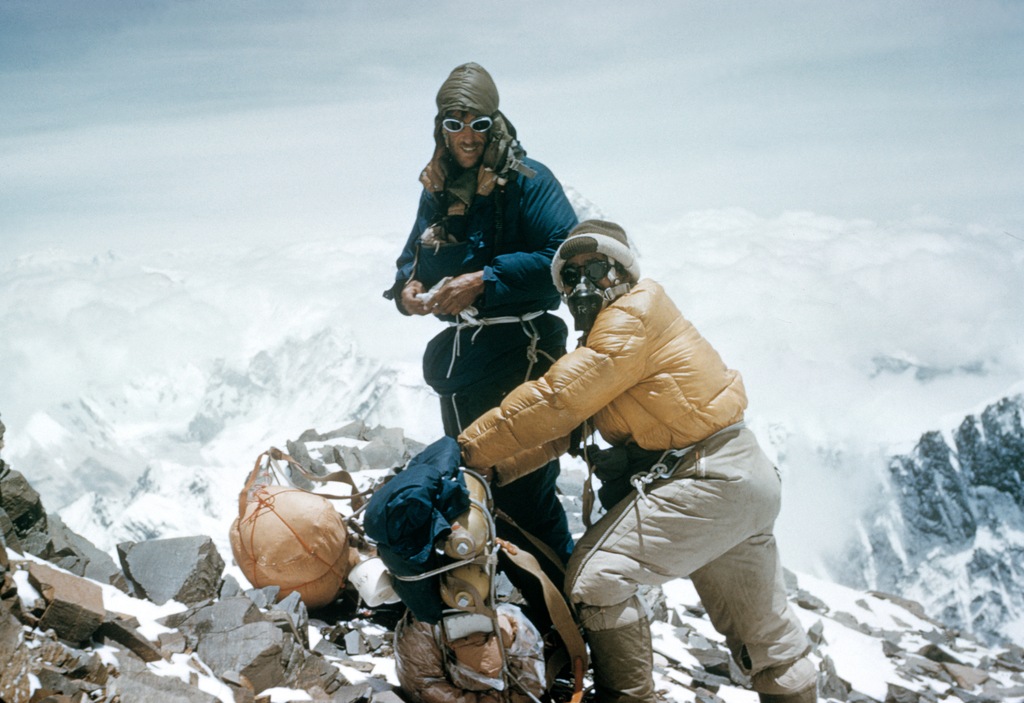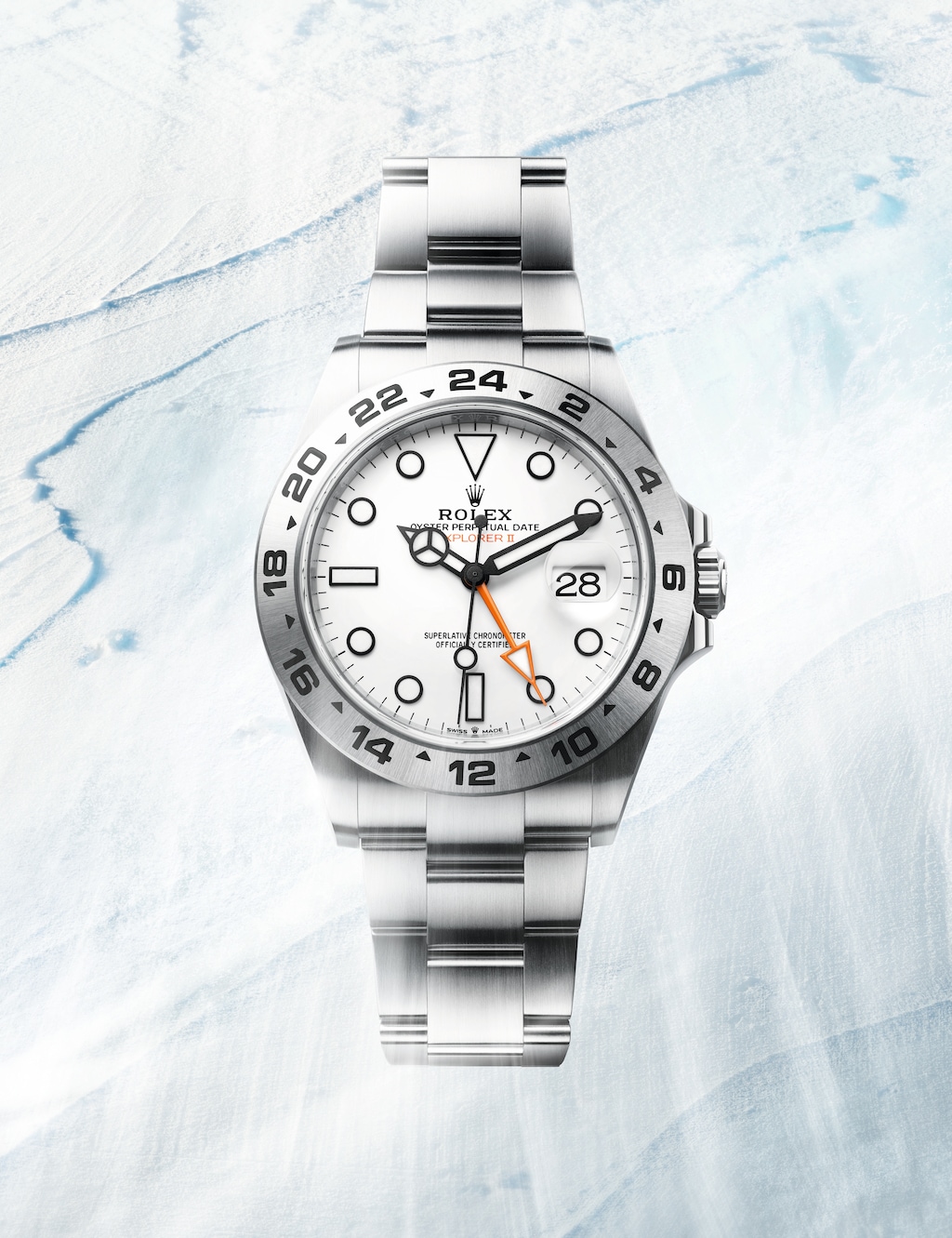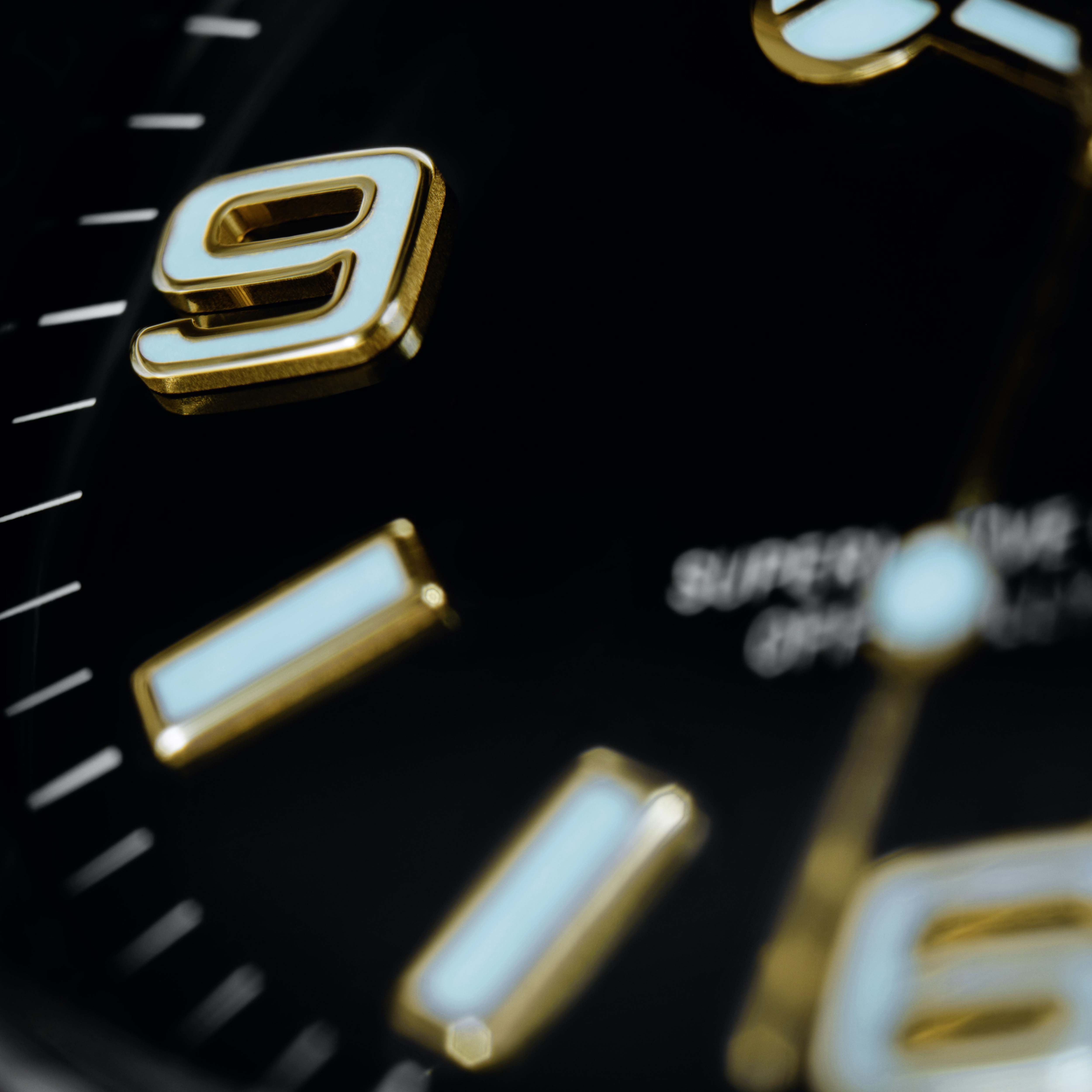This particular expedition to reach the summit of Mount Everest, was achieved by the group comprising Sir Edmund Hillary and Tenzing Norgay. As with the other explorers that followed, Rolex equipped these teams with their Oyster Perpetual watches, pioneering a unique approach to test them in real world conditions.
The Oyster Perpetual Explorer debuted in 1953, following the first successful ascent to the summit of Mount Everest by on 29 May that year. The mountainous range that bordered the Tibetan Plateau formed the Earth’s highest peaks, resulting in a wide range of climates and high altitudes that one is exposed to while exploring on foot.
This spurred Rolex to impose the challenge of creating a tool watch that wouldn’t just be able to withstand environmental thresholds, but to also be a provision of function and reliability.
 Sir Edmund Hillary and Tenzing Norgay climbing Mount Everest, 1953.
© Rolex/Alfred Gregory/Royal Geographical Society
Sir Edmund Hillary and Tenzing Norgay climbing Mount Everest, 1953.
© Rolex/Alfred Gregory/Royal Geographical Society
.jpg) Oyster Perpetual Explorer in yellow Rolesor
©Rolex/JVA Studios
Oyster Perpetual Explorer in yellow Rolesor
©Rolex/JVA Studios
Heir to the privileged relationship that has long united Rolex and exploration, the Explorer II followed later with its debut in 1971, with this series focused on the 24-hour display. The large numerals on the engraved bezel and an additional orange hour hand served to easily distinguish daytime and nighttime in low light conditions.
 Oyster Perpetual Explorer II in Oystersteel
©Rolex/JVA Studios
Oyster Perpetual Explorer II in Oystersteel
©Rolex/JVA Studios
As its namesake, the Explorer has functioned as it is meant to do – to be a robust and legible timepiece that can brave the harshest of terrains. At this year’s Watches & Wonders, Rolex introduced the new generations of the Explorer timepieces.
.jpg) Oyster Perpetual Explorer in yellow Rolesor
©Rolex/Ulysse Fréchelin
Oyster Perpetual Explorer in yellow Rolesor
©Rolex/Ulysse Fréchelin
This latest Explorer gets a new two-toned treatment in yellow Rolesor. A harnonious fusion of 18 ct gold and Oystersteel, the Rolesor treatment has been in use since 1933, a perfect juxtaposition of two metals – the precious lustre of gold, and the resistant durability of steel.
This combination follows the matching three-link Oyster bracelet that’s fitted with the Easylink comfort extension link, as well as the Oysterlock folding safety clasp.
 Oyster Perpetual Explorer in yellow Rolesor
©Rolex/Ulysse Fréchelin
Oyster Perpetual Explorer in yellow Rolesor
©Rolex/Ulysse Fréchelin
In a homage to the original model launched in 1953, this latest version returns with a 36 mm case. With a black lacquered dial, the large index hour markers and emblematic 3, 6 and 9 numerals contribute to the watch’s legibility, which are also coated or filled with the innovative and exclusive Chromalight luminescent material.
This time-only timepiece is powered by the calibre 3230, a movement at the forefront of watchmaking technology. As with all Rolex watches, the Explorer carries the Superlative Chronometer certification, which ensures excellent performance on the wrist.
.jpg) Oyster Perpetual Explorer II in Oystersteel
©Rolex/Ulysse Fréchelin
Oyster Perpetual Explorer II in Oystersteel
©Rolex/Ulysse Fréchelin
Fifty years on, the new generation Explorer II still keeps its timeless look, while sporting relevant updates. Like the Explorer, it benefits from the same optimized Chromalight display, Oystersteel case, and Superlative Chronometer certification.
While the 42mm case remains intact, the fit has been modified with subtly shorter lugs and a wider bracelet that includes the same ergonomic system. It runs on the calibre 3285, a first for the Explorer II, bringing attention to the movement’s precision and high resistance to shocks and magnetism.
This story originally appeared in Portfolio June issue #51.











 Back
Back
